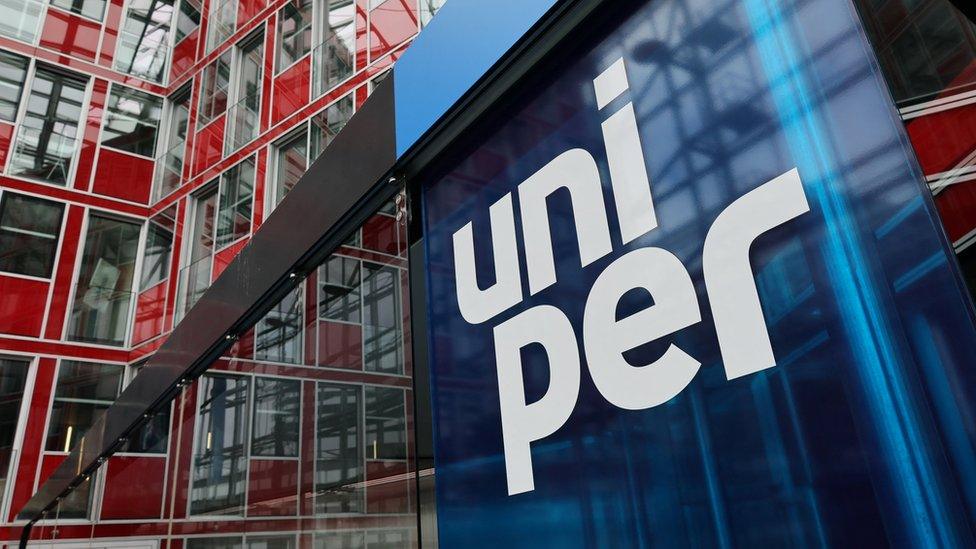Macron-Scholz: Difficult Paris summit for German chancellor
- Published
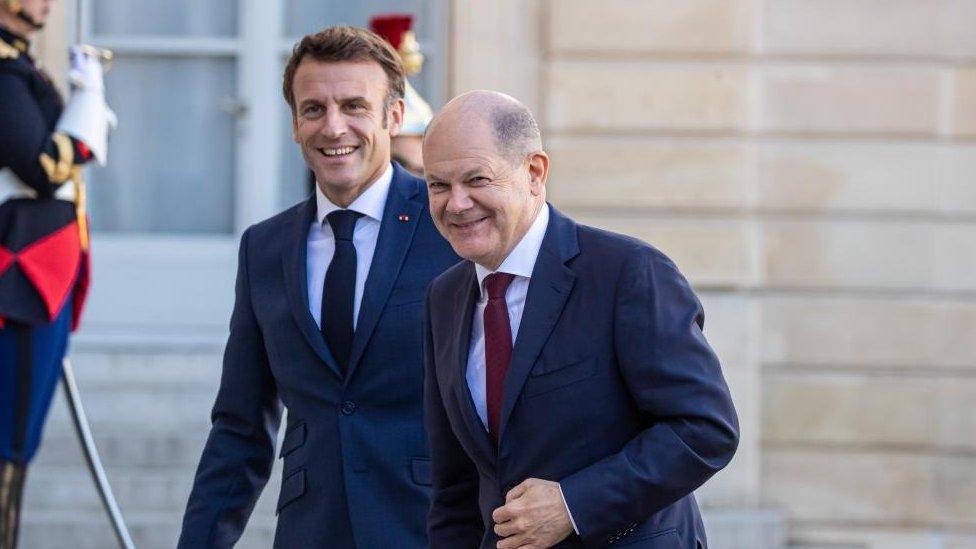
Relations between the two countries are strained over defence, energy and EU expansion
It was all smiles and good cheer when Emmanuel Macron greeted German Chancellor Olaf Scholz on the steps of the Elysée.
The cameras were there to show that all was well between the two leaders.
French government spokesman Olivier Véran told reporters: "This Franco-German engine - we've every intention of keeping it alive."
But behind the bonhomie, both sides know the EU's central relationship is under strain as rarely before.
On a host of subjects - defence, energy, aid to business, EU expansion - the two countries today find themselves pulling in opposite directions. And underlying everything is a fear fast becoming an obsession in Paris.
The French concern is that the war in Ukraine has ripped up Europe's geostrategic rule-book, leaving Germany enhanced and pushing France to the Western side-lines.
Symbolic of the rift was the cancellation of what had been until now a routine set-piece of Franco-German friendship - the regular joint meeting of the two countries' cabinets.
After a pause for Covid, these encounters were meant to resume at Fontainebleau on Wednesday. But faced with a glaring lack of common ground - as well, according to France, as the studied uninterest of several German ministers - it was agreed to call the session off.
Mr Scholz's arrival for a bilateral summit with the French president was an attempt to minimise the differences, but no-one is deceived.
Lamenting what it called the "glacial" state of cross-Rhine relations, Le Figaro newspaper said in an editorial that it was "the result of a profound geostrategic change - a continental shift that started a long time ago and which is destined to transform the face of Europe".
The essence of this shift - according to French analysts - is the awakening of the slumbering giant that is Germany, and its dawning realisation that it must shift for itself in an increasingly dangerous neighbourhood.
For France this is bad news because it casts doubt on a central assumption of the last half century: that by walking lockstep with Germany, France can not just restrain its richer and stronger neighbour, but also project its own vision of European unity.
With almost masochistic relish, French commentators have taken to listing the ways in which Berlin has lately chosen to go its own way rather than find an accord with Paris.
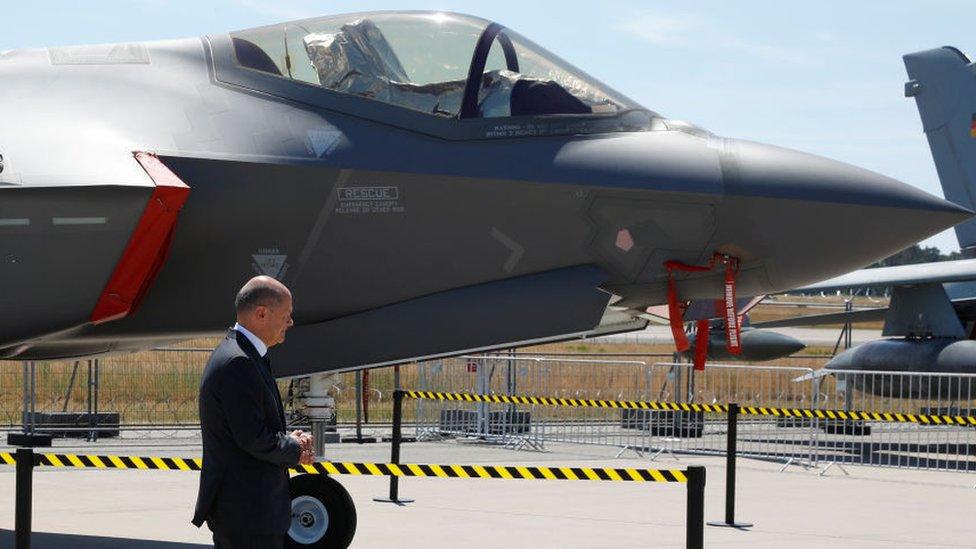
Earlier this year the German chancellor decided to buy F35 fighter jets
On re-arming, Germany has shown a clear preference for US kit - like F-35 fighter jets and Patriot air-defence systems - and seems content to leave once-vaunted European defence initiatives on hold.
Stung by criticism that it was suckered by Russia's Vladimir Putin, Germany appears anxious to reassure its eastern neighbours by promoting itself as the European arm of Nato, rather than - as France would like it - a partner in EU defence.
On energy, Germany is against a cap on gas prices, which France wants. It also wants France to authorise a new pipeline to carry gas - and eventually green hydrogen - from Spain. But France refuses.
And then there is Germany's decision to offer €200bn (£170bn) in state aid to businesses and households to get them through the energy crisis.
For France this will create severe economic distortions, because other European countries will be unable to compete with that level of subsidy. Germans reply that France is hardly in a position to give lessons about the iniquity of state aid.
In an article titled "The late Franco-German couple", veteran French commentator Nicolas Baverez said France had only itself to blame for letting itself be eclipsed by Germany over the years.
What has happened now with the Ukraine war, he said, merely revealed the imbalance that was already there. "While France is content to talk about sovereignty, Germany exercises it," he wrote.
Related topics
- Published3 October 2022
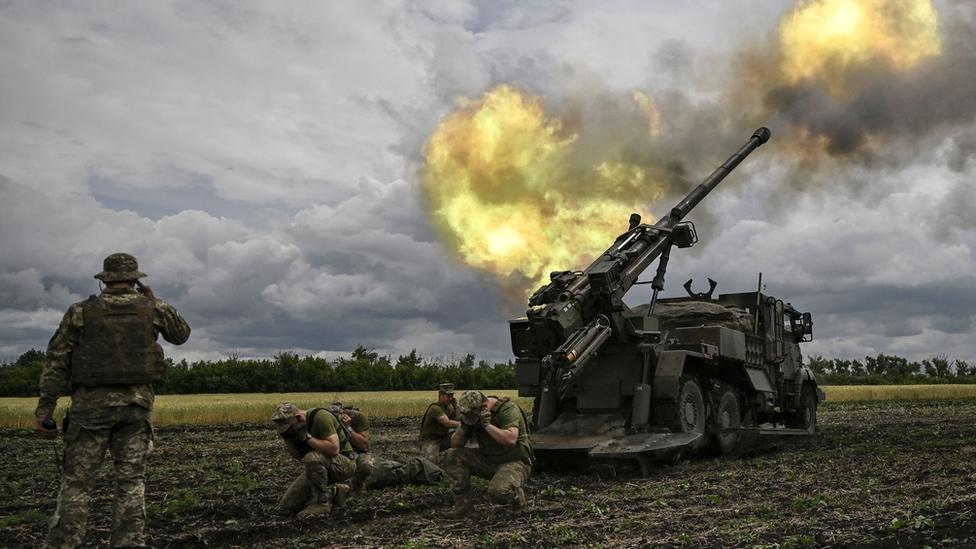
- Published18 October 2022
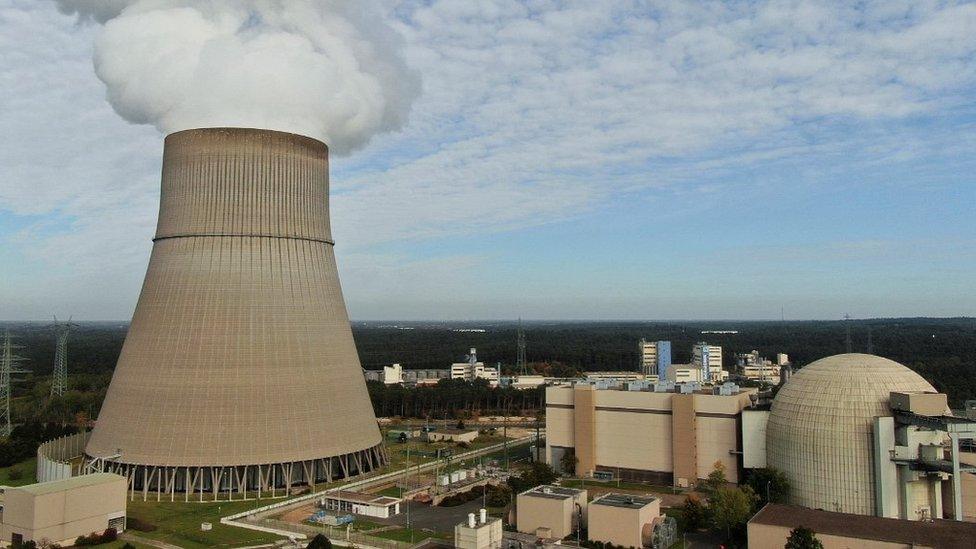
- Published13 October 2022
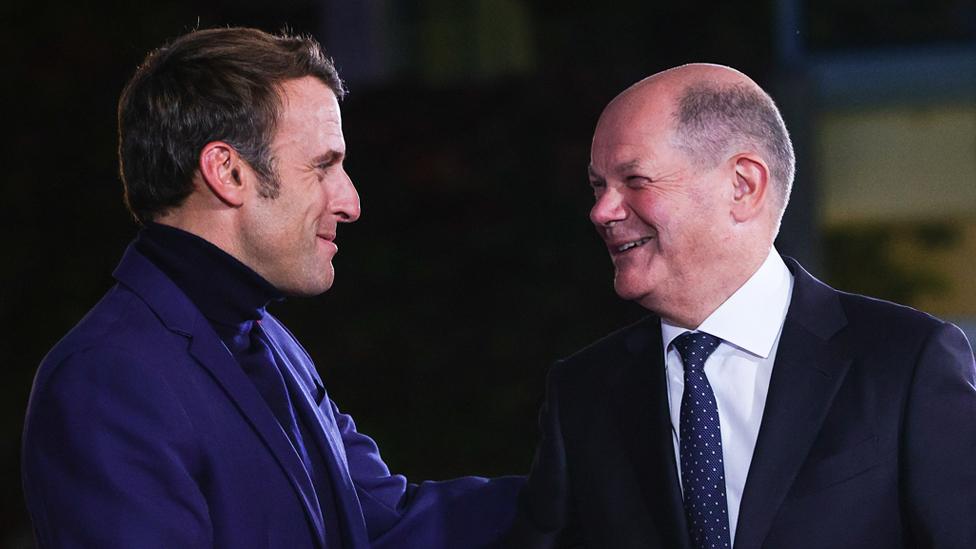
- Published21 September 2022
